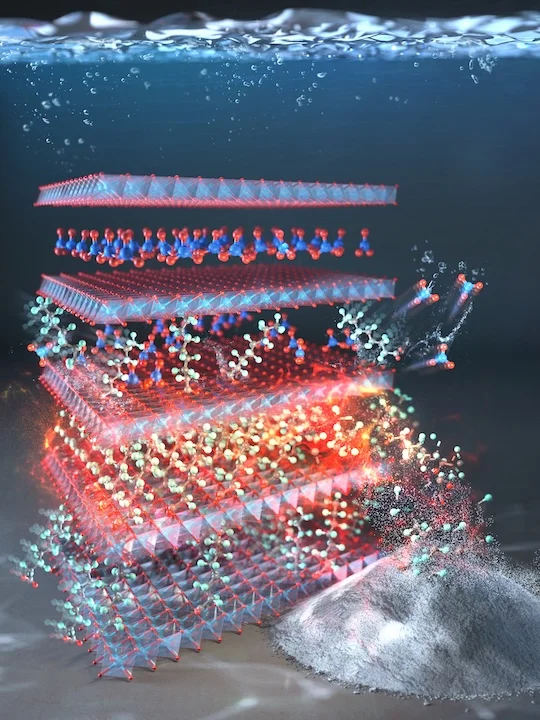Global Ultra-Processed Foods Crisis: Interactive Investigation Global Health Emergency Ultra-Processed Foods: The Global Health Threat Hidden in Plain Sight A new three-paper series in The Lancet exposes how industrial food corporations are reshaping global diets and driving chronic disease worldwide Brightly packaged ultra-processed foods dominate modern grocery aisles—even as evidence links them to rising global health concerns. How much of our food supply consists of these industrial formulations? Ultra-processed foods are contributing
Read More >>Air Cleaning Technologies: What Research Really Shows About Effectiveness Research Review Most
India’s Fireworks Dilemma: Should the Government Take Control? India’s Fireworks Dilemma: Time
Australian Bird of the Year 2025: Tawny Frogmouth Takes the Crown Final
India’s National Red List Assessment Initiative 🌿 India’s National Red List Assessment
Protein Powders: Quick Lead Check & Safe‑Use Guide Short, factual, and interactive.
Nature
View all →Extinct Plant Rediscovered Through Citizen Science Extinct Plant Rediscovered After 58 Years Through Citizen Science
Dolphins in Florida Show Alzheimer’s-Like Brain Changes Marine Science & Health Florida Dolphins Show Alzheimer’s-Like
Environment 📅 Oct 26, 2025 ⏱️ 3–4 min interactive Queensland’s Tropical Rainforests Now Release More
Science High‑Speed Cameras Reveal How Venomous Snakes Bite Fast strikes, different tactics: vipers top the
Feature image: Dusky shark (Carcharhinus obscurus), CC BY 2.0 Marine Safety · Field Note Dusky
Health
View all →-
12 mins read
CrossFit Open 26.1: The Pyramid That Broke the Gym Floor | KarmActive Sport CrossFit Games competition. Photo: CrossFit Games / Charlotte Foerschler CrossFit Open
More -
13 mins read
India’s HPV Vaccination Drive 2026 – KarmActive 🛡️ Public Health India • February 28, 2026 India Launches Nationwide Single-Dose HPV Vaccination Drive for Girls
More -
Chris Bosh Says “I Went to the Darkness” After Blacking Out — No Warning, No Memory, Wife Called 911
15 mins readChris Bosh Says He Woke Up “Covered in My Own Blood,” Reflects on Life After Scare Health & Sport Chris Bosh Says He Woke
More -
14 mins read
Casey Means Surgeon General Hearing: Vaccines, Pesticides and Ethics Photo: Instagram / @drcaseyskitchen · Oct 24, 2024 Public Health · U.S. Policy Casey Means
More -
10 mins read
FDA Class I Recall: 55,689 Pounds Frozen Blueberries Test Positive for Listeria in 4 States FDA Class I Recall: 55,689 Pounds of Frozen Blueberries
More -
8 mins read
WHO 13 Meteorologist Jeriann Ritter Shares ALS Diagnosis Journey WHO-13 meteorologist Jeriann Ritter holds a personalized scarf gifted by a viewer, a moment from
More -
15 mins read
TrumpRx Drug Price Reality Check Health Policy · Feb 2026 TrumpRx DrugPrice RealityCheck The White House says TrumpRx.gov offers the world’s lowest prescription drug
More -
10 mins read
Rice University PFAS Removal Breakthrough – Eco-Friendly Technology A copper–aluminum layered double hydroxide material, featured on the cover of Advanced Materials, illustrates the structure
More -
5 mins read
Key Takeaways I’ve spent the last four years managing custom web development projects at Phenomenon Studio, with particular focus on healthcare website design. Healthcare
More
Most Read
Australia’s Best Beaches 2026: Bate Bay Ranked No.1 by Tourism Australia Wanda’s
ISS Crew-11 Medical Evacuation: First Medical Return in ISS History – KarmActive
Kolkata Shaken After M5.4 Bangladesh Quake — Feb 27, 2026 | KarmActive
AusAlert 2026: Australia’s National Emergency Warning System — Tested on 23 Million
Design
View all →Wind Blades to Building: Interactive Circular Economy Explorer | KarmActive Circular Architecture Innovation From Wind Farm to Car Park: Europe’s First Blade-Built
MoreOmaze has unveiled its latest prize house in Surrey Hills, partnering with Breast Cancer Now charity. Located in Farley Green within the
MoreAudi has unveiled the Concept C, a sleek two-seat sports car that signals a dramatic shift in the company’s design approach while
MoreSustainability
View all →Net-zero targets are increasingly shaping board agendas in many large companies and regulated sectors. Investors want credible transition plans, customers expect lower-impact products, and regulators in jurisdictions like the EU, UK, and Australia are tightening climate disclosures. Many organizations also face pressure from partners that track emissions across supply chains. These expectations push companies to
Keep Reading →Artivism
All →Billie Eilish’s $11.5 Million Climate Donation Billie Eilish Donates $11.5 Million from Tour Proceeds to Climate Causes Grammy-winning artist Billie Eilish is
A 12-foot statue depicting Donald Trump and Jeffrey Epstein holding hands appeared on the National Mall in Washington, D.C., on September 23,
A new Banksy artwork depicting a judge striking a protester appeared on London’s Royal Courts of Justice on September 8, 2025, only
In Chigasaki, south of Tokyo, 42-year-old manicurist Naomi Arimoto has developed an unconventional response to marine pollution: turning beach plastic into nail
Fashion
All →Large shoulder bags for women offer ample storage space, making them suitable for carrying daily essentials during winter.
Australian outback hats are more than just a practical accessory. With a rich history and versatile style, they
It was one of those perfect evenings. We were halfway through our post-dinner walk with Buddy (our Labrador,
Activism
View all →🏆 Nobel Peace Prize 2025 Venezuela’s Opposition Leader Wins Nobel Peace Prize While Living in Hiding María Corina Machado received the 2025 Nobel Peace Prize on October 10 for her work promoting democratic rights in Venezuela, despite serious threats to
Scientists at Monash University have created natural plastic films from food waste sugars that could eventually replace petroleum-based packaging materials. This breakthrough addresses the growing problem of plastic waste, with global plastic production now exceeding 400 million tonnes each year. The research
450 Flotilla Activists Detained: Ben-Gvir Says “Treat as Terrorists” Amid Abuse Claims
A 12-foot statue depicting Donald Trump and Jeffrey Epstein holding hands appeared
Latest
All posts →Australia’s Best Beaches 2026: Bate Bay Ranked No.1 by Tourism Australia Wanda’s sand dunes stretch toward the Kurnell Peninsula — Bate Bay, NSW. Photo: Adam J.W.C., Wikimedia Commons (CC BY-SA 3.0) 🏈 Tourism & Travel · 2026 Sand, Soul &
ISS Crew-11 Medical Evacuation: First Medical Return in ISS History – KarmActive ISS Crew-11 Medical Evacuation: First Medical Return in the International Space Station’s Operational History 📅 Published: February 25, 2026 🛰️ Mission: SpaceX Crew-11 🌍 Category: Spaceflight Safety NASA
Kolkata Shaken After M5.4 Bangladesh Quake — Feb 27, 2026 | KarmActive Breaking · Feb 27, 2026 M5.4 Bangladesh Quake —Kolkata Shakes, Offices Evacuate The ground beneath Kolkata and the Ganges-Brahmaputra Delta trembled on Friday, February 27, 2026, as a
AusAlert 2026: Australia’s National Emergency Warning System — Tested on 23 Million Phones Australia · Emergency Alert · 2026 AusAlertIs Coming Australia’s $132 million national emergency warning system launches in October 2026 — replacing state-based alert infrastructure with cell-broadcast technology





































